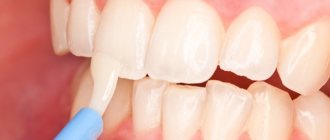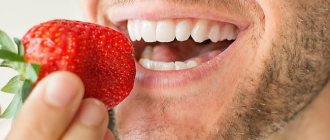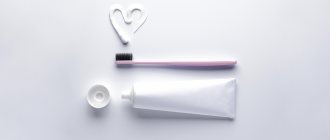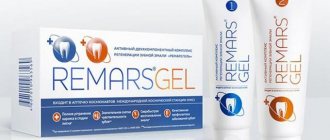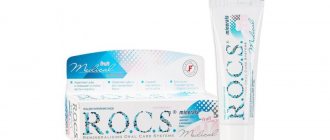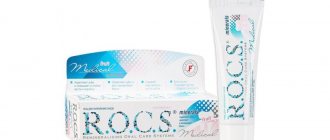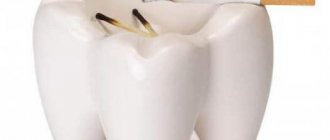Long gone are the days when everyone took calcium gluconate for strong teeth. Science moves forward, new chemical compounds are discovered, experiments are carried out with already familiar ones - in general, new interesting and useful information constantly appears. Including information about vitamins and minerals that have a positive effect on dental health.
Buying good vitamins in Moscow is not a problem now, however, this does not reduce the number of questions. For example, is it better to prefer single drugs or complex ones, how to take them - before or after meals; Which vitamins should an adult buy, and which ones are suitable for very young children?
All these questions will be answered by doctors and practicing dentists at one of the leading clinics in the capital.
The more expensive the toothbrush and toothpaste, the better they are.
Reality: The cost of hygiene products is not an indicator of their usefulness specifically for you. The structure of dental tissues, their location, color, shape, as well as characters, are different for everyone.
What to do?
The selection of oral hygiene products should only be carried out by your treating dentist. In addition, the doctor will evaluate the correctness of your usual cleaning method and make the necessary adjustments.
Fact: The quality of teeth cleaning is influenced not so much by the toothbrush and toothpaste you choose, but by the correctness and duration of this manipulation. It has been proven that with a recommended time of about 3-5 minutes, most often the average person on the planet spends about 30 seconds brushing their teeth. Tip: To stay on time, turn on your favorite song and brush your teeth from the first chord to the last. On average, the duration of songs is the 3-5 minutes we need. Both fun and useful!
Heredity is to blame for bad teeth
Reality : The role of heredity in the health of our teeth is extremely small and is manifested in the structure and properties of tooth tissue: enamel and dentin. In fact, a person even with not very good heredity has every chance of keeping his teeth healthy.
What to do?
Take proper care of your teeth throughout your life and make regular visits to your dentist.
Fact: Today, there is an opposite theory that lesions of specific teeth may indicate a predisposition to the pathology of a particular organ or an already existing disease.
Correlation of teeth affected by caries with pathology of internal organs
The best material for bridges
Feldspar ceramics on a zirconium oxide framework or E.max on a zirconium oxide framework. Metal-ceramic dentures, having the same strength, look a little less natural, but when combined with removable clasp locking prosthetics, they come out on top.
B vitamins
Riboflavin (B2), niacin (B3), cyanocobalamin (B12) and other vitamins of this group are involved in many redox processes. They maintain the health of the oral microflora and prevent the development of dysbacteriosis; help fight gingivitis and periodontitis.
The main signs and consequences of B vitamin deficiency:
- inflammatory-dystrophic changes in the gums;
- the appearance of ulcers and wounds in the mouth;
- bad breath.
Foods rich in B vitamins:
- almonds, walnuts, as well as other nuts and seeds;
- cereals;
- whole wheat pasta;
- leafy vegetables;
- dairy products, cheese;
- meat;
- oranges, lemons;
- carrots, etc.
It is important that all vitamins of this group are present in the diet, especially B12, B6, B3, B2 and B1.
The best material for crowns
E.max (Imax) or feldspathic ceramics on a zirconium oxide frame. Metal-ceramics are inferior to them in aesthetics, but are in no way inferior in strength - for chewing teeth this is an equally reliable, but less expensive choice. Metal-ceramics on a cobalt-chromium alloy, when manufactured with high quality, are no worse than metal-ceramic crowns on a gold or gold-platinum alloy.
No one has ever died from a bad tooth
Reality: Infection coming from a diseased tooth (odontogenic infection) is one of the most dangerous. A diseased tooth is a source of pathogenic environment in the body. Numerous colonies of microorganisms live and multiply in the mouth, some of them quite aggressive. From a “neglected” diseased tooth, microbes can travel throughout the body, both independently and by causing allergization of the body, which leads to a decrease in immunity. In addition, ulcers on the roots with a decrease in immunity can lead to the development of serious complications (abscesses, phlegmon, osteomyelitis, etc.), and sometimes cause conditions incompatible with life.
Fact: Scientists have proven that the presence of multiple chronic foci of infection in untreated teeth in pregnant women leads to miscarriage and low fetal weight during childbirth.
What to do?
At least 1-2 times a year, undergo examination and professional hygiene at the dentist, which will help identify and effectively eliminate pathology in the initial stages of development.
Fact: Expenses of Russian residents, according to data at the beginning of the century, on certain types of goods and services (per year): - for vodka, beer, cigarettes - $12 billion, - for medicines - $2.2 billion, - for dental care – $600 million
Vitamin C (ascorbic acid)
Ascorbic acid is the key to healthy teeth, as it improves nutrition of the mucous membrane, affects metabolism, as well as the processes of hematopoiesis and blood circulation in the capillaries and vessels of the gums. Healthy gums, in turn, nourish and “hold” teeth.
The main signs and consequences of vitamin C deficiency:
- swelling, inflammation and bleeding of the gums, which can lead to gingivitis;
- the appearance of wounds and ulcers in the oral cavity;
- dryness of the red border of the lips;
- loose gums;
- bad breath;
- frequent infectious diseases of the oral cavity;
- loosening of teeth;
- in an advanced stage – periodontitis and complete loss of all teeth.
Foods rich in vitamin C:
- parsley and dill;
- rose hip;
- citrus;
- some types of berries (sea buckthorn, strawberries, black currants, etc.);
- red pepper;
- apples, etc.
Foods high in vitamin C are the best way to prevent gum inflammation.

